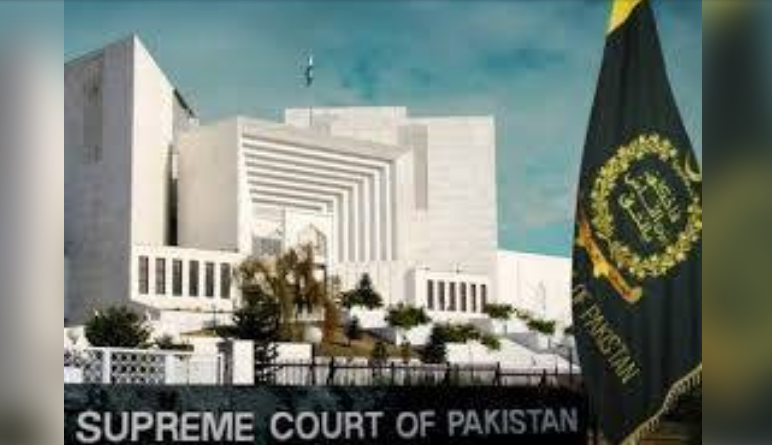Islamabad (Web Desk): The Supreme Court (SC) on Tuesday continued its hearing on Tuesday concerning petitions about the trial of civilians in military courts, with Advocate Salman Akram Raja presenting his arguments for the third consecutive day.
A seven-member Constitutional Bench of the SC headed by Justice Amin-Ud-Din Khan heard an intra-court appeal against military trials of civilians.
Raja, representing a convict involved in the May 9 incident, requested an excuse for his absence from the previous day's proceedings, explaining that he was unable to reach the court due to a traffic jam.
He maintained that this was a result of roadblocks caused by ongoing development work in Islamabad, as well as heavy traffic due to security measures on certain routes. The lawyer said that the only open Margalla Road was also severely congested.
However, Justice Amin ud Din Khan dismissed the excuse, remarking that those who needed to be in court were present.
Justice Jamal Mandokhail asked the counsel Raja to conclude his arguments today, but the counsel indicated that he would need until the following day to do so.
Continuing his arguments, Raja referenced the main judgment concerning military courts, which explained that no court could be established outside the scope of Section 3 of Article 175 of the Constitution.
Justice Muhammad Ali Mazhar intervened, pointing out that service matters are typically addressed at the departmental level initially.
Justice Hasan Azhar Rizvi expressed concern about the increasing trend of protesters damaging public property, referring specifically to the May 9 incidents in which demonstrators broke into the house of the Corps Commander and vandalized it.
He also mentioned that some protesters had forcibly entered private homes and destroyed household items.
Justice Rizvi lamented that such behavior was becoming more common globally, citing similar incidents in countries like Bangladesh and Syria.
Justice Jamal Mandokhail emphasized that forced entry into private property is an offense under the law.
In response to a question from Justice Hasan Azhar Rizvi, Raja acknowledged that such events had occurred in several countries, but promised to provide more examples later.
Raja also pointed out the history of the Balochistan High Court, which had consistently issued rulings in favour of common citizens against military dictatorships.
He briefly referred to a judgment from the Peshawar High Court, authored by Judge Seth Waqar Ahmad, which is cited in the International Court of Justice (ICJ) but could not be discussed in the current proceedings.
Justice Naeem Akhtar Afghan reminded the court that the Constitution, established in 1973, had undergone a review through the 18th Amendment, which addressed laws from the dictatorial eras.
“It is the right and privilege of the parliament to make and amend laws, not the Supreme Court,” he remarked.
He stressed that the role of legislation belongs to Parliament, not the Supreme Court, and it is Parliament's responsibility to create and amend laws.
The court then adjourned the proceedings until Wednesday.


